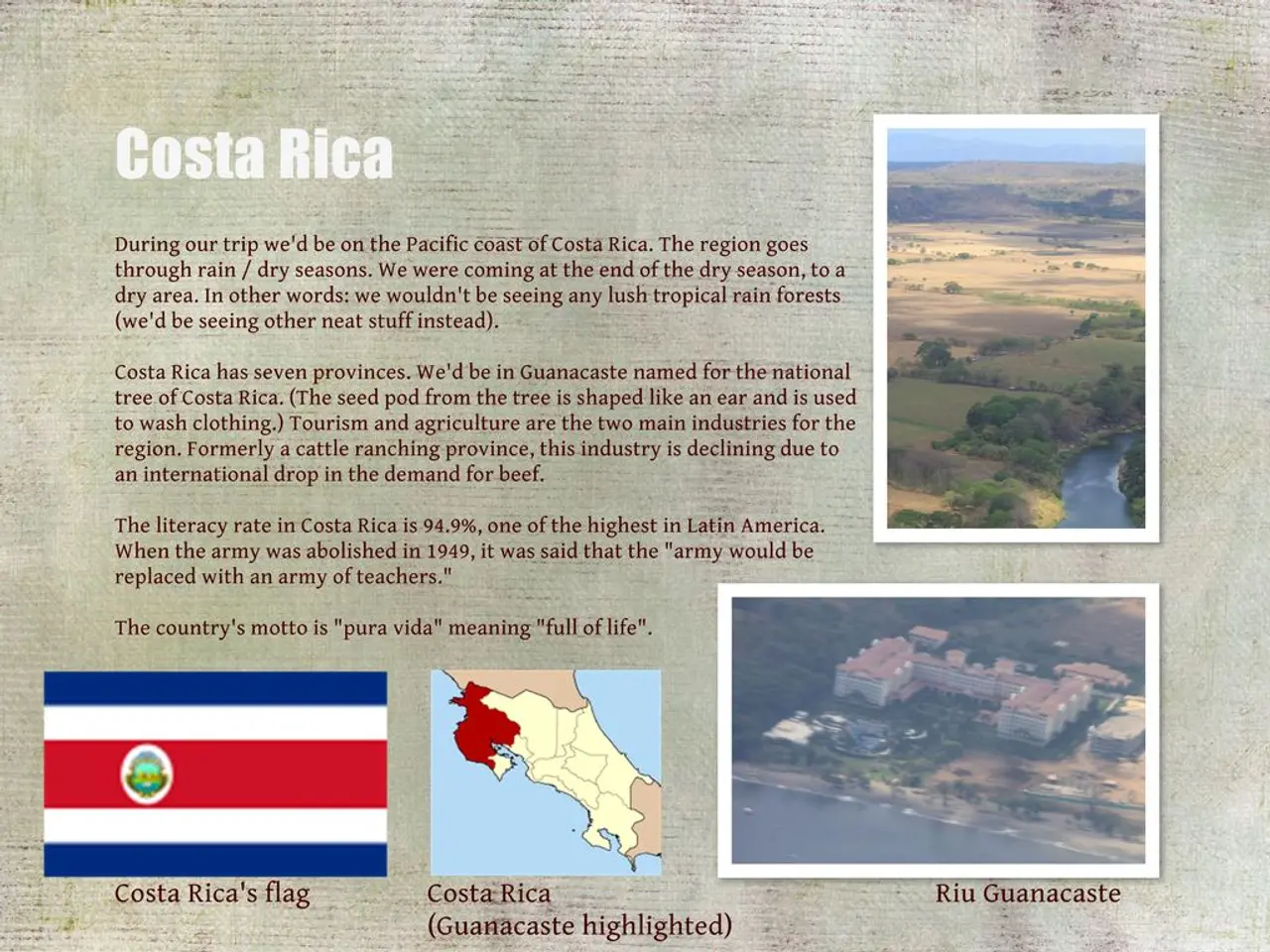Venezuela calls up its militia in response to U.S. declaration of potential deployment of military personnel in seas surrounding Latin America
The United States has positioned a significant military presence near Venezuela, with three Arleigh Burke-class guided missile destroyers, a nuclear-powered submarine, an amphibious ready group of three ships, and around 4,000 to 4,500 Marines, according to reports. This flotilla, which also includes advanced warships and surveillance aircraft, has been stationed in international waters off Venezuela.
The official purpose presented by the US government is an anti-narcotics operation targeting illicit drug trafficking from Venezuela to the United States. White House Press Secretary Karoline Leavitt stated that all military options remain on the table to stop drugs flooding the US and bring those responsible to justice.
However, analysts and multiple reports interpret this deployment as a broader show of force and a form of intimidation aimed at the Maduro regime. The Marine Corps presence and the scale of the forces involved go beyond a typical anti-drug operation, indicating preparation for possible military action or destabilization efforts within Venezuela.
In response, the Venezuelan government, led by Nicolás Maduro, has strongly condemned the US naval movements as a threat of invasion and aggressive intervention. Maduro has announced the mobilization of more than 4.5 million militia volunteers to bolster national defense against external attack. Venezuelan state media and officials emphasize the deployment as intimidation and accuse the US of attempting forced regime change and infringing on Venezuela’s sovereignty.
According to Global Fire Power, Venezuela ranks 50th in military power among 145 countries in the 2025 ranking. The Venezuelan Ministry of Defense states that the Bolivarian National Armed Forces (FANB) has around 95,000 to 150,000 active combatants and a growing National Militia made up of hundreds of thousands of reservists.
The situation remains highly tense with no indication the US intends immediate ground combat but with substantial pressure aimed at Maduro’s regime politically, militarily, and psychologically. The US government has doubled the reward to $50 million for information leading to the arrest of Maduro, who they describe as "one of the world's largest drug traffickers." However, the Venezuelan government has rejected these accusations, stating that they are resorting to threats and defamation.
As the standoff continues, both sides have reaffirmed their commitment to defending their respective territories. Maduro emphasized that Venezuela will defend its seas, skies, and lands, while the US administration has confirmed naval movements in the region to contain drug trafficking threats. The US administration has also denied any plans for immediate invasion, with a US Department of Defense official stating that there are currently no US ships in the area and no orders have been given for them to head there.
The US-Venezuela standoff is a complex and evolving situation, with both sides maintaining firm stances. The future remains uncertain, with tensions running high and both nations showing no signs of backing down.
[1] https://www.reuters.com/article/us-venezuela-usa-navy-idUSKBN26C26P [2] https://www.nytimes.com/2020/05/01/world/americas/venezuela-us-navy.html [3] https://www.bbc.com/news/world-latin-america-52481464 [4] https://www.washingtonpost.com/world/the_americas/trump-administration-considers-sending-us-navy-ships-to-venezuela/2020/05/01/86a5b6e4-0c14-11ea-952b-7f94c838a8e0_story.html [5] https://www.wsj.com/articles/trump-administration-considers-sending-navy-ships-to-venezuela-11588254800
Read also:
- Weekly happenings in the German Federal Parliament (Bundestag)
- Southwest region's most popular posts, accompanied by an inquiry:
- Discussion between Putin and Trump in Alaska could potentially overshadow Ukraine's concerns
- Massive 8.8 earthquake hits off the coast of Russia's Kamchatka Peninsula, prompting Japan to issue a tsunami alert.






